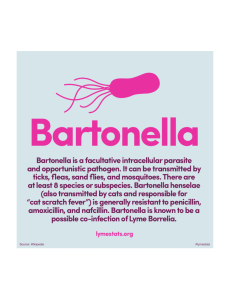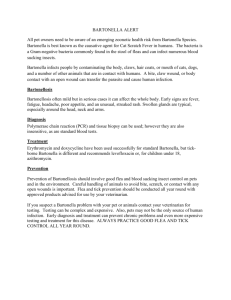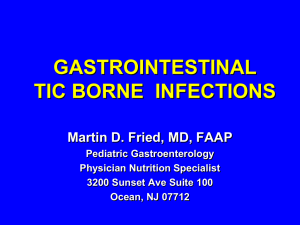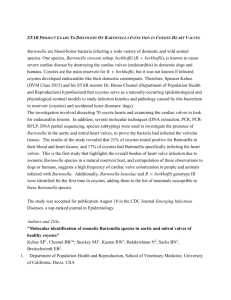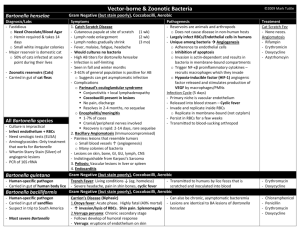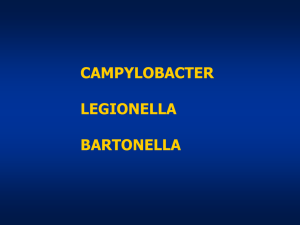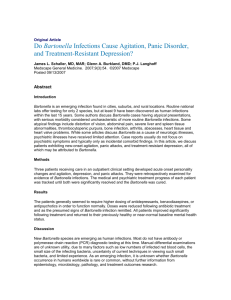Bartonella Plague Ignored and Lyme Treatment Fails:
advertisement
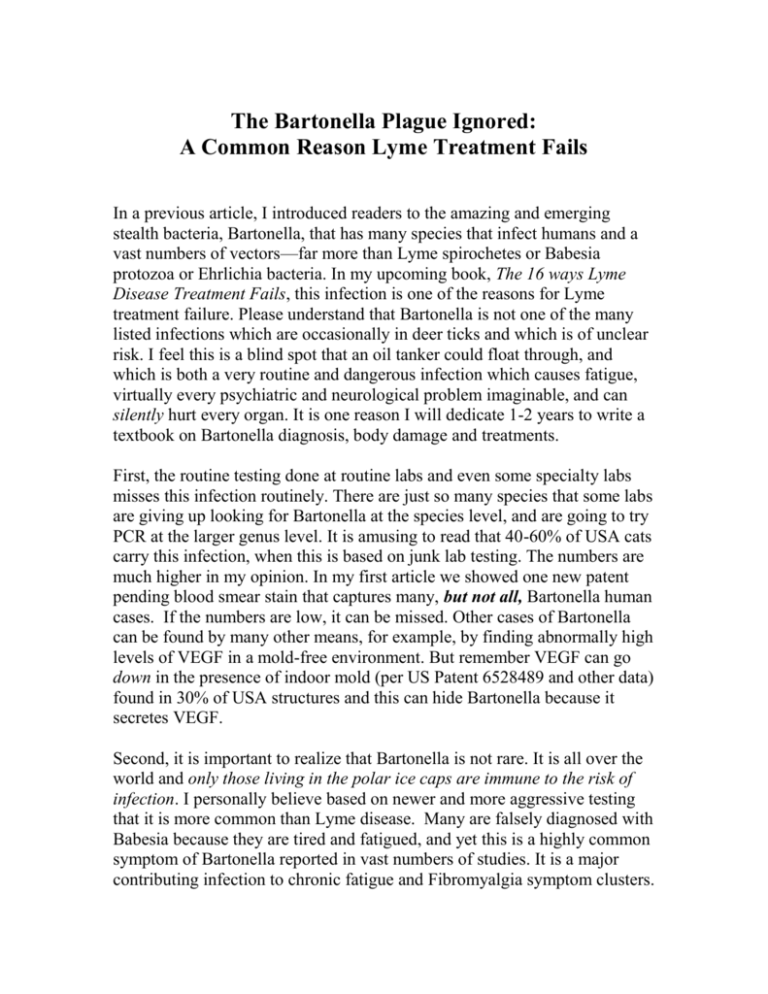
The Bartonella Plague Ignored: A Common Reason Lyme Treatment Fails In a previous article, I introduced readers to the amazing and emerging stealth bacteria, Bartonella, that has many species that infect humans and a vast numbers of vectors—far more than Lyme spirochetes or Babesia protozoa or Ehrlichia bacteria. In my upcoming book, The 16 ways Lyme Disease Treatment Fails, this infection is one of the reasons for Lyme treatment failure. Please understand that Bartonella is not one of the many listed infections which are occasionally in deer ticks and which is of unclear risk. I feel this is a blind spot that an oil tanker could float through, and which is both a very routine and dangerous infection which causes fatigue, virtually every psychiatric and neurological problem imaginable, and can silently hurt every organ. It is one reason I will dedicate 1-2 years to write a textbook on Bartonella diagnosis, body damage and treatments. First, the routine testing done at routine labs and even some specialty labs misses this infection routinely. There are just so many species that some labs are giving up looking for Bartonella at the species level, and are going to try PCR at the larger genus level. It is amusing to read that 40-60% of USA cats carry this infection, when this is based on junk lab testing. The numbers are much higher in my opinion. In my first article we showed one new patent pending blood smear stain that captures many, but not all, Bartonella human cases. If the numbers are low, it can be missed. Other cases of Bartonella can be found by many other means, for example, by finding abnormally high levels of VEGF in a mold-free environment. But remember VEGF can go down in the presence of indoor mold (per US Patent 6528489 and other data) found in 30% of USA structures and this can hide Bartonella because it secretes VEGF. Second, it is important to realize that Bartonella is not rare. It is all over the world and only those living in the polar ice caps are immune to the risk of infection. I personally believe based on newer and more aggressive testing that it is more common than Lyme disease. Many are falsely diagnosed with Babesia because they are tired and fatigued, and yet this is a highly common symptom of Bartonella reported in vast numbers of studies. It is a major contributing infection to chronic fatigue and Fibromyalgia symptom clusters. Third, Bartonella causes about 20-30 problems with each body organ. And this is merely what we know about, at this time, before a real mastery of this organism exists. Why such damage? Perhaps because it is outside or inside Red Blood Cells, but it also enters the lining of all blood vessels in all tissues and when in this location, it can cause a wide range of destructive actions. All tissues eventually have ultra tiny blood vessels called capillaries which are so small Red Blood Cells have to sometimes squeeze through to get oxygen to the deepest cells. It also causes nodules in many types of tissues like the liver, spleen and skin. If you read some simplistic articles on Bartonella they treat it like a cold, and falsely assume you need enlarged lymph nodes and a purple, blue or red blood vessel rash or flat rash, and a papule to have Bartonella or “Cat Scratch Fever.” Of course Bartonella is most commonly found without these things. Even the so called Bartonella rashes, caused by VEGF making and opening capillaries, are usually listed as having 3-4 forms when we have found over 30 forms, including occasionally open sores with debris. But most people who have any rashes miss them because it takes years to learn how to see them because they often mix in with other common skin vascular findings. Fourth, you should appreciate that it is unlikely you will ever be cured of Lyme in the presence of Bartonella. Why? Bartonella is a massive immune suppressing bacteria. It can float attached to Red Blood Cells in vast numbers and not even cause a cold or fever. Just imagine, bacteria are floating in your blood and you might not have any fever at all! If you had Staph or Strep in your blood at these levels you would likely be dead in 48 hours unless you were pumped full of antibiotics in an ICU. So how is it this huge elephant floats in vast numbers and causes no severe fever and no disastrous signs of deadly sepsis—infected blood throughout the body with massive inflammation. It is because it has ways of shutting down the immune system. It violates many rules of bacteria behavior and this is one reason it has been so seriously missed until recent years. Here are some advanced specifics on the power of surface Bartonella chemicals to turn off immunity and immune defense inflammation. In one article, one species on Bartonella had some of its chemicals released with human immune fighting monocytes—no production of proinflammatory cytokines occurred. Interestingly, this LPS Bartonella chemical is a potent antagonist of Toll-like receptor 4 (TLR4), as it inhibited both RNA transcription and the release of tumor necrosis factor alpha, interleukin 1beta (IL-1beta), and IL-6 by another common bacteria’s LPS in human monocytes. These are some other tests worth considering in Bartonella testing. This article concludes by saying that Bartonella LPS is so powerful that it is being looked at as a treatment for autoimmune diseases. (Popa C, Abdollahi-Roodsaz S, Joosten LA, et al. Bartonella quintana lipopolysaccharide is a natural antagonist of Toll-like receptor 4. Infect Immun. 2007 Oct;75(10):4831-7). In conclusion, make sure if you are being treated for “Lyme disease,” that the other critical issues of treatment are not ignored such as: Bartonella, Babesia, Lyme biotoxins, Bartonella suppressive endotoxins, mold biotoxins, and Lyme biofilms are something that are not being ignored. In our highly visual book, The 16 ways Lyme Disease Treatment Fails, out in 8 weeks, we will discuss all of these and other reasons for treatment failure and suggest some ways to kill Bartonella. Current traditional and progressive treatments are very poor and given at doses that are too low for too short a time. It is one reason for such large numbers of relapse in supposedly Bartonella “cured” patients. Also, one usually needs to pulse a treatment with some days off each moth for reasons we will explain in future articles. ****** Dr. Schaller is the author of 23 books in five languages and 26 peer-reviewed journal publications in such places as the Journal of the American Medical Society, Medscape (WebMD’s academic top Internet journal, the Journal of Clinical Neurosciences, and top Pediatric journals around the world. He is a full-time researcher who largely self-funds studies in over 10 areas of medicine. He is the author of two successful books on mold toxins, the co-author of a third and is also a certified mold remediator and certified mold investigator. He is also the author of the leading up-to-date books on Babesia, Artemisia/Artemisinin and Suboxone for pain and addiction. He is the inventor of a functional blood cancer cure that is a standard worldwide, and has a patent pending on a bio-identical, natural and powerful antidepressant. He treats patients from all over the world with non-patient consults by phone or as patients after being seen once in person.
